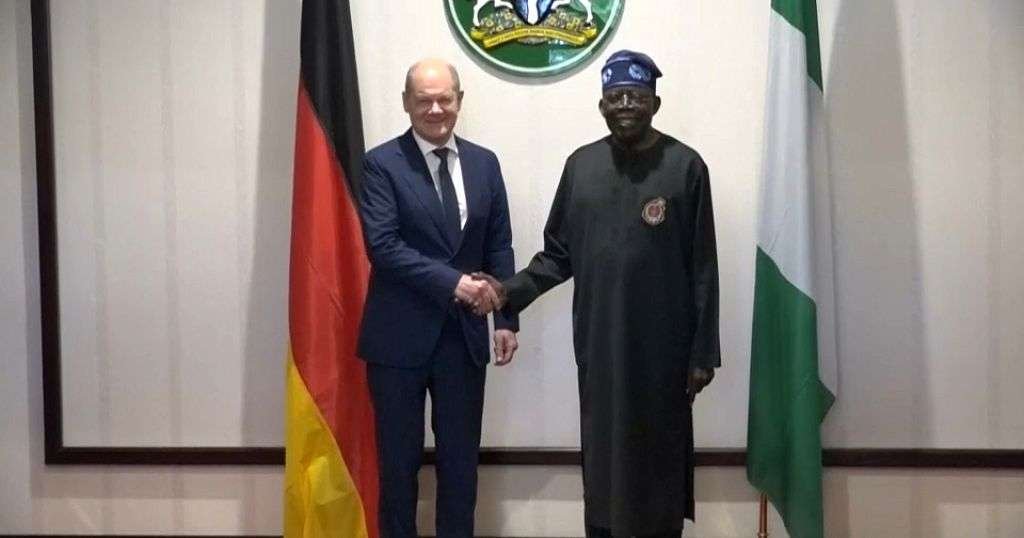Abuja, Nigeria – (African Boulevard News) – In a bid to boost trade and strengthen bilateral partnerships, Nigeria and Germany have engaged in discussions focused on enhancing economic cooperation and investment opportunities. German Chancellor Olaf Scholz held talks with Nigerian President Bola Tinubu during his West Africa tour, highlighting the shared commitment to foster closer ties between the two nations.
During the meeting, Chancellor Scholz expressed Germany’s interest in diversifying its trade relations and investment portfolio in Africa, with Nigeria being a key focus for potential collaborations. Both countries recognized the immense potential for growth and development through increased trade and investment.
Nigeria, as the largest economy in Africa, offers a promising market for German businesses seeking to expand their operations. The country’s vast natural resources, growing middle class, and strategic location make it an attractive investment destination. On the other hand, Germany brings its technological expertise, advanced manufacturing capabilities, and global market access, offering Nigeria numerous opportunities for industrial development and economic growth.
One important aspect of the discussions centered around the need to address existing barriers and create a conducive environment for trade between the two countries. President Tinubu highlighted the importance of improving infrastructure, reducing bureaucratic obstacles, and enhancing the ease of doing business to attract more German investors to Nigeria.
In response, Chancellor Scholz expressed his country’s commitment to supporting Nigeria in its development efforts. He emphasized the need for transparency, fair trade practices, and a level playing field to facilitate German businesses’ entry into the Nigerian market.
The discussions also focused on exploring opportunities for collaboration in key sectors such as renewable energy, agriculture, manufacturing, and technology transfer. Both leaders recognized the potential for mutually beneficial partnerships in these areas, which could contribute to job creation, technology transfer, and sustainable development.
Experts and industry stakeholders have welcomed the renewed focus on bilateral trade between Nigeria and Germany. Ahmed Musa, an economist at the University of Lagos, stated, “Enhancing trade relations between Nigeria and Germany could have significant positive impacts on our economy. We have valuable resources that can be harnessed to meet Germany’s demand for raw materials, while German technology and expertise can help boost our manufacturing and industrial sectors.”
The outcomes of these discussions between Nigeria and Germany are expected to lead to increased trade volumes, improved business collaborations, and enhanced economic ties. As both countries prioritize economic diversification and seek to harness new opportunities, this partnership has the potential to drive inclusive growth, create employment opportunities, and foster sustainable development in Nigeria and Germany.
In the pursuit of stronger trade relations, Nigeria and Germany are poised to unlock the opportunities that lie ahead, building a foundation for a long-lasting and mutually beneficial partnership.

